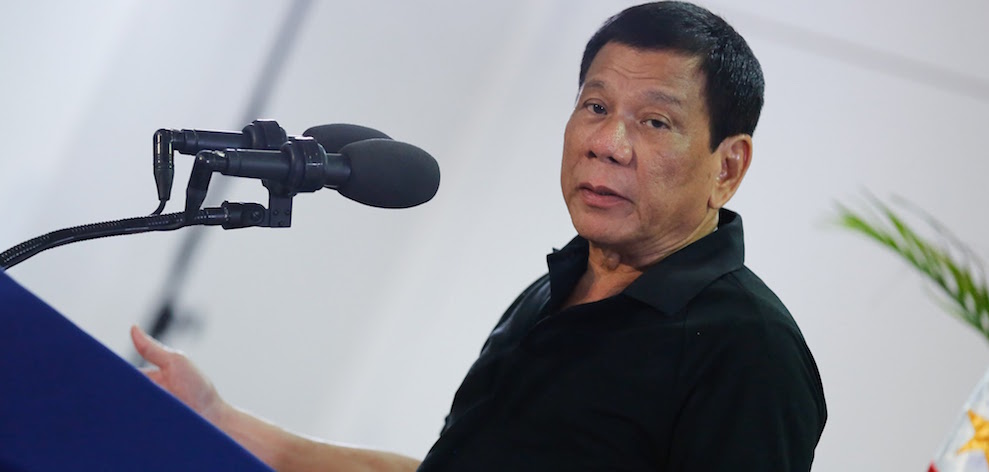Human Rights Matter, At Home and Abroad

Last Updated on November 20, 2017.
By Aubrey Manahan, Program Associate, Campaigns, and Outreach, Global Progressive Hub
Most of the headlines surrounding Donald Trump’s recent trip to Asia have focused on heightened tensions between the US and North Korea. However, one issue that has made less of a splash has been the ongoing human rights abuses in the Philippines.
A few days ago, Trump made the final stop of his Asia tour in the Philippines, where he met with the country’s infamous president Rodrigo Duterte. Despite repeated calls from activists and members of Congress, Trump refused to bring up Duterte’s bloody anti-drug campaign that has been condemned by human rights groups around the world.
Earlier in the year, Trump called Duterte and congratulated him on doing an “unbelievable job on the drug problem” despite Duterte’s support of extrajudicial killings in his “war on drugs” that has murdered over 50 children and left over 10,000 people dead.
During their meeting this week, President Duterte was actually the one who broached the issue of the extrajudicial killings and human rights abuses. As Duterte talked about the “drug menace” in the Philippines, the President of the United States “appeared sympathetic and did not have any official position on the matter but was merely nodding his head.”
Although less blatant than congratulating a country’s leader for committing human rights abuses, which Trump has also done on multiple occasions, Trump’s silence amounts to tacit approval of Duterte’s human rights abuses, which has real impact not only on what’s happening in the Philippines but also around the world.
Trump’s blatant disregard, even encouragement, for human rights violations greenlighted the growing atrocities in the Philippines, sanctioned by a president who has advocated gunning people down in the streets and threatened to shoot human rights defenders. Even the perception of agreement from international leaders with Duterte’s approach has been enough to embolden Duterte and lead to the loss of more lives. Duterte’s presidency has already been marked by a body count that targeted children and the poor. The result was a chilling campaign that left grandparents, parents, children, grandchildren, families and neighborhoods devastated and grieving.
The Trump administration’s acceptance of human rights abuses under a perversion of American ideals and with American power emboldened the autocratic actions in the Philippines. In August, Duterte touted the lack of criticism from the US and Canada on human rights at a press conference, despite the abuses becoming more blatant. Since Trump congratulated Duterte, Duterte threatened to assassinate journalists and openly celebrated the bloodiest days of the “war on drugs.” Duterte even bragged about the intensifying violence in the Philippines and called for more deaths. Over the summer, Duterte declared martial law in the southern part of the Philippines, a move not seen since the dictator, Ferdinand Marcos, grabbed power. Despite Duterte directly linking the war in Marawi to his war on drugs and human rights abuses, Secretary of State Tillerson went on the record saying that he sees “no conflict – no conflict at all in our helping them with that situation and our views of the human rights concerns we have with respect to how they carry out their counter narcotics activities.” The US has since been providing aid to the Philippine government in the form of “surveillance capabilities, training, information and aircraft to aid in the conflict”.
In contrast, it was precisely the type of criticism on human rights abuses from the international community, including a joint statement from the EU leaders, and the masses that eventually forced Duterte to suspend his bloody 15-month campaign on the poor. Widespread protests in the wake of highly-publicized murders of three teenagers caused Duterte to disband police anti-drug units, cease Operation Double Barrel, a campaign that targeted high-level dealers and street pushers, and place responsibility for drug operations with the Philippine Drug Enforcement Agency (PDEA) instead of the police. During his speech unveiling this new memorandum, he explicitly stated he hoped these actions would satisfy “bleeding hearts and the media.”
A recent Amnesty International report has found evidence of war crimes in Marawi, still under martial law, and Duterte is facing the Philippine Supreme Court to defend the drug war. It is deeply shameful that in the wake of widespread international efforts, the US government has been noticeably ignoring human rights. Not only did Trump refuse to speak out during their bilateral meeting, he publicly reaffirmed his pledge to send over $100 million US government dollars to the Philippines for the conflict in Marawi and the so-called drug war following his visit to the Philippines. In reaction, a Philippine presidential spokesperson reacted by saying “That proves without doubt that the US President supports the war on drugs. Why would he otherwise give $2 million to this cause if he thinks it’s not being implemented correctly?” In fact, people are reporting that the relationship between Trump and Duterte has only improved since the visit where both leaders ignored human rights questions and derided reporters.
Human rights, whether at home or abroad, are intimately connected. Under a government that is openly embracing leaders accused of crimes against humanity, we must also consider how injustices are encouraged to flourish domestically and internationally. When our government abandons human rights, it signals that it doesn’t care about people, regardless of where in the world abuses occur. This can also be seen in Trump’s refusal to condemn white supremacist violence during the protests in Virginia. From Charlottesville to the Philippines, abandoning human rights costs more than our legitimacy, it costs lives.

